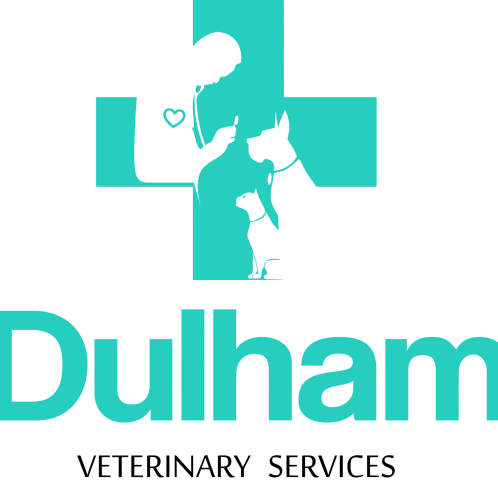Vaccination is a critical aspect of responsible dog ownership in Nigeria, where environmental challenges and infectious diseases pose significant risks to canine health. Rabies and DHPP vaccines for dogs in Nigeria represent the cornerstone of preventive veterinary care, protecting both animal and human populations from potentially fatal diseases. This comprehensive guide explores the importance, benefits, and considerations of these essential vaccinations in the Nigerian context.
Understanding Canine Vaccination Basics
What are Rabies and DHPP Vaccines?
DHPP is a combination vaccine that protects against four critical canine diseases:
- D: Distemper (a severe viral illness)
- H: Hepatitis (Canine Adenovirus)
- P: Parvovirus
- P: Parainfluenza
Rabies vaccine protects against the fatal rabies virus, which is a significant public health concern in Nigeria.
The Critical Importance of Vaccination in Nigeria
Nigeria’s unique environmental and health challenges make Rabies and DHPP vaccines for dogs in Nigeria particularly crucial:
Rabies Prevalence
- Nigeria remains one of the countries with a high rabies transmission risk
- Stray dog populations and limited animal control infrastructure increase transmission potential
- Rabies continues to be a serious public health threat, especially in rural and semi-urban areas
Disease Transmission Risks
- High population density in Nigerian cities
- Limited veterinary infrastructure in many regions
- Frequent contact between domestic and stray animals
- Tropical climate supporting rapid pathogen spread
Vaccine Schedule and Recommendations
Puppy Vaccination Protocol
- First DHPP vaccine: 6-8 weeks of age
- Second DHPP vaccine: 10-12 weeks
- Third DHPP vaccine: 14-16 weeks
- Booster shots: Annually or as recommended by veterinarian
Rabies Vaccination Timeline
- First rabies vaccine: 12-16 weeks of age
- Booster shot: One year after initial vaccination
- Subsequent boosters: Every 1-3 years depending on local regulations and vaccine type
Cost Considerations for Rabies and DHPP Vaccines for Dogs in Nigeria
Average Vaccination Costs (as of 2024)
- DHPP Vaccine: ₦10,000 – ₦15,000 per dose
- Rabies Vaccine: ₦8,500 – ₦10,000 per dose
Factors Affecting Vaccination Costs
- Location (urban vs. rural)
- Veterinary clinic infrastructure
- Vaccine brand and quality
- Additional consultation fees
Benefits of Comprehensive Vaccination
Health Protection
- Prevents fatal diseases
- Reduces veterinary treatment costs
- Protects entire community through herd immunity
- Minimizes zoonotic disease transmission
Specific Disease Prevention
Rabies Protection
- 100% fatal if symptoms develop
- Direct threat to human health
- Legal requirement in many Nigerian jurisdictions
DHPP Vaccine Protections
- Distemper: Neurological and respiratory disease
- Hepatitis: Liver and kidney damage
- Parvovirus: Severe gastrointestinal illness
- Parainfluenza: Respiratory tract infection
RECOMMENDED
- The Ultimate Guide to Pet Nutrition: Essential Diet & Supplements
- Essential Health Screenings: Top 10 Laboratory Tests Every Dog Owner Should Know About
- Veterinary Services and Medicine: Roles, Treatments, & Benefits
Challenges in Nigerian Veterinary Vaccination
Infrastructure Limitations
- Limited veterinary clinics in rural areas
- Inconsistent vaccine storage and handling
- Cost barriers for low-income pet owners
Practical Recommendations
- Choose reputable veterinary clinics
- Ensure proper vaccine storage (cold chain)
- Maintain accurate vaccination records
- Consider mobile veterinary services
Selecting the Right Veterinary Provider
Key Considerations
- Professional certification
- Vaccine storage capabilities
- Experience with local disease patterns
- Comprehensive health check during vaccination
- Follow-up care options
Financial Assistance and Community Programs
Emerging Initiatives
- Local government rabies control programs
- NGO-supported vaccination campaigns
- Community veterinary health drives
- Subsidized vaccination programs in some urban centers
Potential Side Effects and Management
Common Vaccine Reactions
- Mild fever
- Temporary lethargy
- Small swelling at injection site
- Rare allergic reactions
When to Seek Immediate Veterinary Attention
- Persistent vomiting
- Facial swelling
- Difficulty breathing
- Prolonged weakness
Regional Variations in Nigerian Vaccination Needs
Considerations by Geographic Zone
- Southern Humid Regions: More frequent parasite concerns
- Northern Arid Zones: Different disease transmission patterns
- Coastal Areas: Unique environmental disease risks
Legal and Ethical Responsibilities
Nigerian Pet Ownership Laws
- Rabies vaccination often legally mandated
- Potential fines for non-compliance
- Public health protection requirements
Emerging Veterinary Technologies
Future of Canine Vaccination
- More targeted vaccine development
- Improved storage and delivery methods
- Enhanced tracking of vaccination records
- Potential for reduced booster frequency
The Importance of Rabies and DHPP Vaccination for Dogs in Nigeria
Rabies and DHPP vaccines for dogs in Nigeria represent a critical investment in both animal and public health. By understanding the comprehensive benefits, navigating cost considerations, and maintaining a proactive approach to vaccination, Nigerian dog owners can protect their beloved companions and contribute to broader community health initiatives.
Remember that vaccination is not just a medical procedure but a responsible commitment to your pet’s long-term well-being and the safety of those around you.
At Dulham Veterinary Clinic, we provide expert vaccination services and professional guidance to ensure your pet stays protected against rabies, distemper, parvovirus, and other serious illnesses. Prioritize your pet’s health today with timely vaccinations!
Visit Us
No 23 Crown Court Estate 2, Orunbe Close, Oniru, Victoria Island, Lagos.
Phone Us
0806 632 9826
Mail Us
Frequently Asked Questions (FAQs) on Rabies and DHPP Vaccines for Pets
1. At what age should my pet receive the rabies and DHPP vaccines?
Answer: Puppies should receive their first DHPP vaccine at 6–8 weeks old, followed by boosters at 10–12 weeks and 14–16 weeks. The first rabies vaccine is given at 12–16 weeks of age, with a booster after one year and then every 1–3 years, depending on local regulations.
2. Are rabies and DHPP vaccines mandatory for pets in Nigeria?
Answer: Yes, rabies vaccination is legally required in many parts of Nigeria due to its public health risk. DHPP is not legally mandated but is highly recommended for protecting dogs from severe viral diseases like distemper and parvovirus.
3. Can my pet experience side effects after vaccination?
Answer: Most pets tolerate vaccines well, but mild side effects like slight fever, lethargy, or swelling at the injection site can occur. Serious reactions, such as difficulty breathing or vomiting, are rare but require immediate veterinary attention.
4. Where can I get my pet vaccinated in Nigeria?
Answer: You can vaccinate your pet at licensed veterinary clinics, government veterinary hospitals, and some pet care centers. Additionally, NGOs and government programs sometimes offer free or subsidized rabies vaccination campaigns.

